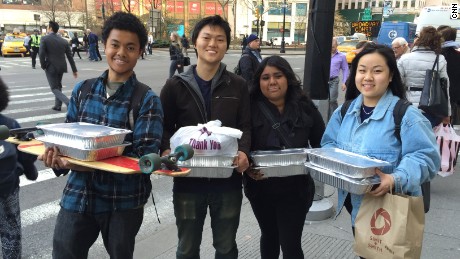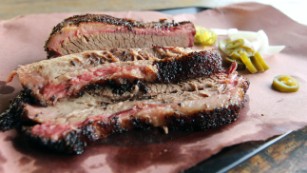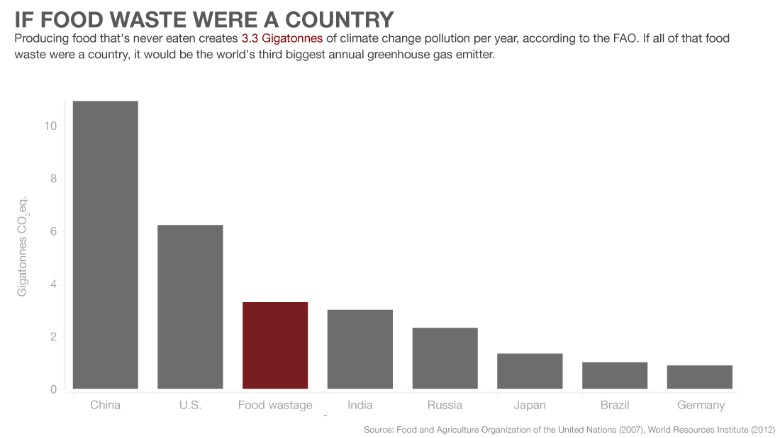On those days when you wonder how you can help, reflect on this article, the state of our food production and consumption and take steps to keep compost out of the land fill.
Many people seem surprised at the massive impact food waste has on emissions. They should not be.
Why world leaders are eating 'landfill salad' and cucumber-butt pickles
CNN columnist John D. Sutter is reporting on a tiny number -- 2 degrees -- that may have a huge effect on the future. He'd like your help. Subscribe to the "2 degrees" newsletter or follow him on Facebook, Twitter and Instagram. He's jdsutter on Snapchat.
(CNN)If you had the opportunity to develop a meal for a bunch of well-heeled world leaders -- the kind of people who start wars and end them -- where would you turn for ingredients?
If you're Sam Kass, a former White House chef, the answer is obvious: the landfill.
Or, more accurately: food destined for the landfill.
Why? Well, to make a point. Wasting food is a massive, unnecessary contributor to global warming, and not too many people seem to be talking about it.
"In the United States we throw away around 40% of what we produce; and globally, 28% of the land under cultivation grows food that ends up in landfills," Kass told me. "Not only are you wasting all of the energy and water -- and the emissions from nitrous oxide from fertilizers -- you then just dump that into a landfill, which produces methane in amounts that is just staggering.
"And that's all for naught."
Yum! Eat up, Ban Ki-moon!
Actually, yes. That's exactly what happened.
"Food production and agriculture contribute as much to climate change as transportation," the U.N. secretary-general said after eating what's been called a "trash" lunch, according to a U.N. transcript.
"Yet more than a third of all food produced worldwide -- over 1 billion tons of edible food each year -- goes to waste. That is shameful when so many people suffer from hunger."
It's incredibly shameful.
If you total up the climate change pollution created by the production of wasted or rotten food, you get more annual greenhouse gases than those from all of Russia or India.
According to the U.N. Food and Agriculture Organization, this "food waste," if it were a country, would be the third biggest polluter in the world -- behind only China and the United States.
Stop and think about that for a minute.
If we found a way to stop wasting food, we could reduce greenhouse gases more than if India -- home to some of the most polluted cities in the world -- powered itself 100% by renewable energy.
This, of course, isn't an either-or thing. We should reduce food waste while aggressively working to stop fossil fuel use if we're going to avert dangerous global warming.
But reducing food waste is "one place where progress is possible maybe faster than anywhere else," said Kass, the former White House chef, who is also an NBC News analyst.
"The general public, when they hear greenhouse gas emissions and climate change, their eyes glaze over," Kass said. "It feels so big and detached from their lives. They're very disempowered to do something about it. And I think it's been a big barrier to more aggressive action. But food is one of those ways to tell this story in a way people can really relate to -- and, ultimately, in a way people can incorporate, and become an actor in the solution over time."
Some of it's about personal choices: buying only what you need; not throwing out food that's still edible; eating those sad, "deformed" fruits and vegetables. Industry also plays a role, according to Kass. Better storage and shipping practices could reduce waste. And immigration reform, he said, could help ensure good fruits and vegetables aren't left unpicked in fields. Restaurants should do a better job of serving climate-friendly fare, too, he said, including less meat, which has an outsize effect on creating greenhouse gas emissions, and more scrap food.
"The first steps are harder," he said.
Luckily, it does seem we're stumbling forward.
Kass told me the world leaders loved the landfill salads and cucumber-butt pickles.
Hopefully they'll remember that experience when they meet in Paris this December. That's when they'll try to put together a treaty to avoid dangerous levels of warming.
Kass said he will be there again.
Serving up food that otherwise would be wasted.
And trying to raise awareness about its contribution to climate change.




No comments:
Post a Comment